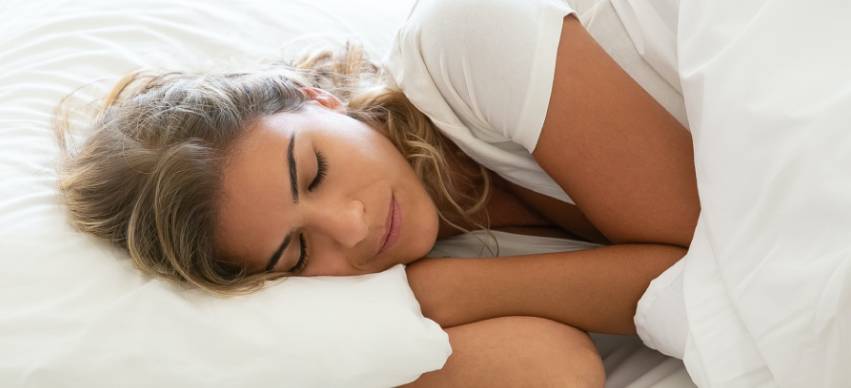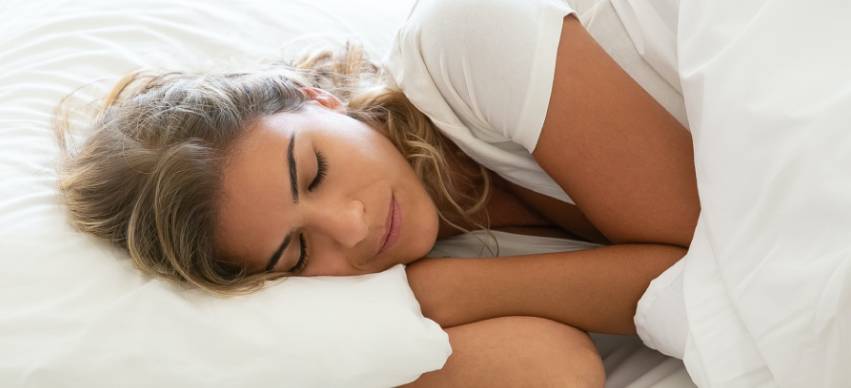Managing Chronic Conditions with Concierge Telemedicine: 5 K..
6 Min Read


People suffering from long-term insomnia or occasional disruptive sleep at night tend to look for sleep enhancers or supplements. There are many supplements on the market today, like Root Brands, that work as natural sleeping aids. Fascinatingly, these dietary supplements are treated as foods instead of medications by the FDA (Food and Drug Administration).
Thus, these supplement manufacturers are entitled to show the safety or effectiveness of their products before selling them on the market. Nevertheless, while doctors prescribe any medicine to a patient considering several health aspects, it’s better to consult them before consuming any new supplements.
Well, this article talks about some of the best natural sleep enhancers or sleep aids that are proven to give people quality sleep. So let’s scroll down and learn about them!
A natural sleep aid works excellently for disrupted sleeping and mild to moderate insomnia. They contain vitamins, minerals, and plant supplements. However, these aids also include components present in the body that have sleep-promoting abilities, like melatonin.
Unlike sleeping drugs or medicines, natural sleeping supplements have fewer side effects. So insomnia patients or those having severe sleeping problems can turn to these natural aids. Find the best natural sleep aid for you below. However, note that the FDA neither regulates nor approves natural sleep aids or enhancers. Thus, you can’t ideally ascertain which ones are effective and safe.
This naturally produced hormone maintains the sleep-wake cycle, or circadian rhythm, in our brain. Our body consists of the pineal gland, which produces melatonin at night in low-light conditions. Its production is a signal to the brain that it’s time for sleep.
In the United States, you can get melatonin over the counter as a nutritional supplement. But in most other countries, a prescription is a must to get synthetic melatonin.
Melatonin supplements are known to help overcome health conditions, including those related to the circadian rhythm or internal clock related to sleep issues, shift work, insomnia in children, jet lag, and nocturnal hypertension. Moreover, older insomnia patients can get a better night's sleep with this natural supplement.
Common Side Effects
Although most research on kava for insomnia is done on animals, it is often recommended for people with anxiety-related insomnia. One study showed that people taking kava saw relief from insomnia within 14 days of intake. But two questionable things were
Moreover, the FDA also recommended consumers not intake kava-containing supplements as they can cause chronic liver injury.
Common Side Effects
According to the studies assessing sleep quality, no apparent differences could be found between those consuming valerian and those taking a placebo. Valerian root is known to influence the levels of GABA (gamma-aminobutyric acid). It’s a relaxing chemical in the brain. However, some studies have reported that valerian has improved sleep quality in some people.
Common Side Effects
Tryptophan is an essential amino acid that helps regulate nitrogen and niacin production. And it’s necessary for the secretion of the neurotransmitter serotonin, which is said to be the relaxation or ‘feel good’ neurotransmitter. The secretion of serotonin is important for melatonin production, which further regulates sleep.
This component is available as a supplement on the market. However, most studies on tryptophan were conducted during the 1980s and 1970s, and they showed that people with mild sleeping issues taking 1 gram of tryptophan felt sleepy quickly.
Well, while tryptophan isn’t a sleeping pill, it may not work for people with severe insomnia. Moreover, like melatonin, one should avoid taking it more often. Instead, you can opt to consume foods containing tryptophan like fish, milk, cheese, chicken, peanuts, turkey, pumpkin, and sunflower seeds.
Common Side Effects
Another effective natural sleeping aid is this aromatherapy oil, chamomile, that is known to improve sleep quality. People traditionally use this element to minimize anxiety and muscle tension, eventually encouraging sleep. Interestingly, clinical trials didn’t show any effectiveness for insomnia.
Nonetheless, taking a cup of warm chamomile tea can help you get a good night's sleep. Chamomile isn’t known to have any side effects when consumed as a tea. However, some can have:
Magnesium is another component that works as a natural sedative for sleep. Some studies on this mineral showed that people who consumed magnesium via supplements or foods had better sleep duration and quality.
Foods containing magnesium include:
On the other hand, these mineral supplements are available in different forms, like citrate, magnesium oxide, chloride, glycinate, and citrate.
Common side effects of high doses
CBD, or cannabidiol, is another active component in marijuana (cannabis), extracted straight from the hemp plant.
According to the preliminary studies, cannabis is thought to help cure insomnia. The results of the studies on cannabis association with sleep are mixed. Thus, it calls for more research on this ingredient to confirm its effectiveness on sleep.
Common Side Effects of Intaking CBD
Passionflower is also known to affect the GABA (Gamma-aminobutyric acid) levels in the brain, which help with sleep and anxiety. However, there aren’t clinical trials in humans to support the association between passionflower and sleep.
This component is usually used or consumed in combination with kava and valerian. Thus, it’s hard to ascertain passionflower’s own qualities that can affect sleep. However, passionflower is recommended to be taken in moderate amounts.
Common Side Effects
Natural sleep enhancers or supplements can be effective in cases of insomnia and prolonged disruptive sleep. However, like any drug, these natural supplements can also cause unexpected side effects. Thus, it’s always better to consult a healthcare professional before taking any remedies.